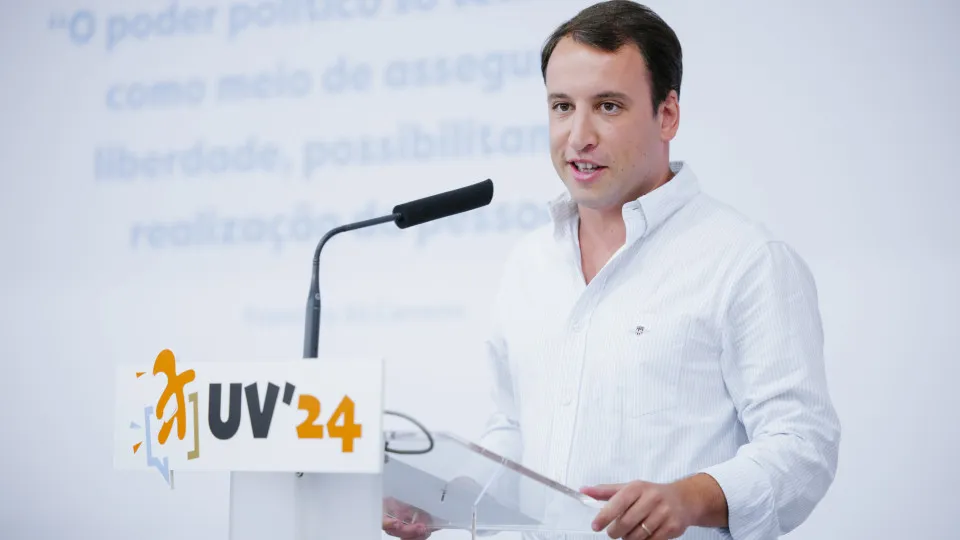
Discussion will take place tomorrow, July 11th, at the Assembly of the Republic regarding a bill that proposes the revocation of the legislation approved in March 2025 recognizing and defining obstetric violence in Portugal.
The CDS-PP submitted this bill last month aiming to repeal law 33/2025, published on March 31st, which “promotes rights in pregnancy and childbirth.” This law was approved with votes against from PSD, CDS-PP, and abstentions from Chega and the Liberal Initiative. PSD also seeks to eliminate the concept of obstetric violence from this same law.
The newly presented project has sparked various reactions, with many considering that the proposal disregards women’s voices, protects inhumane practices, and perpetuates the normalization of suffering. Conversely, CDS argues that the law is vague and may lead to the mother’s emotional and sentimental side overriding scientific and medical knowledge, endangering lives.
How it all began
Last month, CDS-PP introduced a bill intending to revoke law 33/2025, in effect since March 31st, arguing that the concept of obstetric violence “is not aligned with standards followed in other European Union countries.”
Subsequently, last Friday, PSD introduced a bill along similar lines, contending that the current law’s concept is “excessively broad and undesirably vague”, and its application “could result in an unacceptable stigma on doctors and healthcare professionals, even encouraging undesirable and dangerous defensive medical practices.”
The law targeted for alteration was approved with dissenting votes from PSD and CDS-PP. It defines obstetric violence as all physical and verbal acts by healthcare professionals based on dehumanizing behavior, over-medicalization, or “pathologizing natural processes, disrespecting the protection regime,” from pre-conception to birth.
This law also established a legal framework for episiotomy, an incision made to facilitate childbirth, promoting its eradication.
CDS and PSD’s stance
Following the debate ignited by CDS’s proposal, the party indicated earlier this week that it is open to not revoking the entire law promoting women’s rights in pregnancy and childbirth, provided that the concept of obstetric violence is removed from the legislation.
According to deputy João Almeida, “the fundamental error” in the legislative process regarding the rights in pregnancy and childbirth law, approved last March, was “not having heard all parties,” he stated. Paulo Núncio argues that “although concerns about childbirth and postpartum recovery are perfectly legitimate, […] the current law is disproportionate, misaligned with reality, and may have perverse social effects.”
The centrist deputy believes, “the current law may endanger the lives of children and mothers by prioritizing emotional validation over medical and scientific knowledge.”
The PSD, on the other hand, considers the current law’s concept “excessively broad and undesirably vague” and its application “could result in an unacceptable stigma on doctors and healthcare professionals, even encouraging undesirable and dangerous defensive medical practices.”
What do the parties say?
The Left Bloc, largely responsible for the law’s approval, expressed its dissatisfaction via a video on social media over the Government’s decision to prioritize, “dismantling the obstetric violence law that the Bloc managed to pass at the end of the last legislature”.
“We won’t stop fighting for women’s and pregnant women’s rights,” assures Joana Mortágua, also highlighting that “routine episiotomy, abusive vaginal cuts considered violence by the WHO and the EU” are excessively practiced in Portugal.
The PAN, one of the first parties to comment on the situation, proposed expanding the legal concept of obstetric violence. Inês Sousa Real suggests that the law should also include psychological and emotional violence, limitations on women’s choice, and actions like administering drugs without informed consent.
PAN also aims to include practices like the “Kristeller maneuver,” drug administration without informed consent, or losses of mobility and autonomy such as “bed restriction” on the list of actions that could be classified as obstetric violence.
Associations criticize, and a petition emerges
Meanwhile, 23 associations signed a document considering the repeal of the law as an act of “institutional violence,” signifying an “ignorance of women’s voices, protection of inhumane practices, and perpetuation of the normalization of suffering.”
According to this group of associations, which includes the Observatory of Obstetric Violence (OVO) and the Union of Alternative and Response Women (UMAR), the integration of the concept of obstetric violence resulted from complaints, studies, reports, and primarily the courageous testimony of thousands of women who have been silenced for too long.




